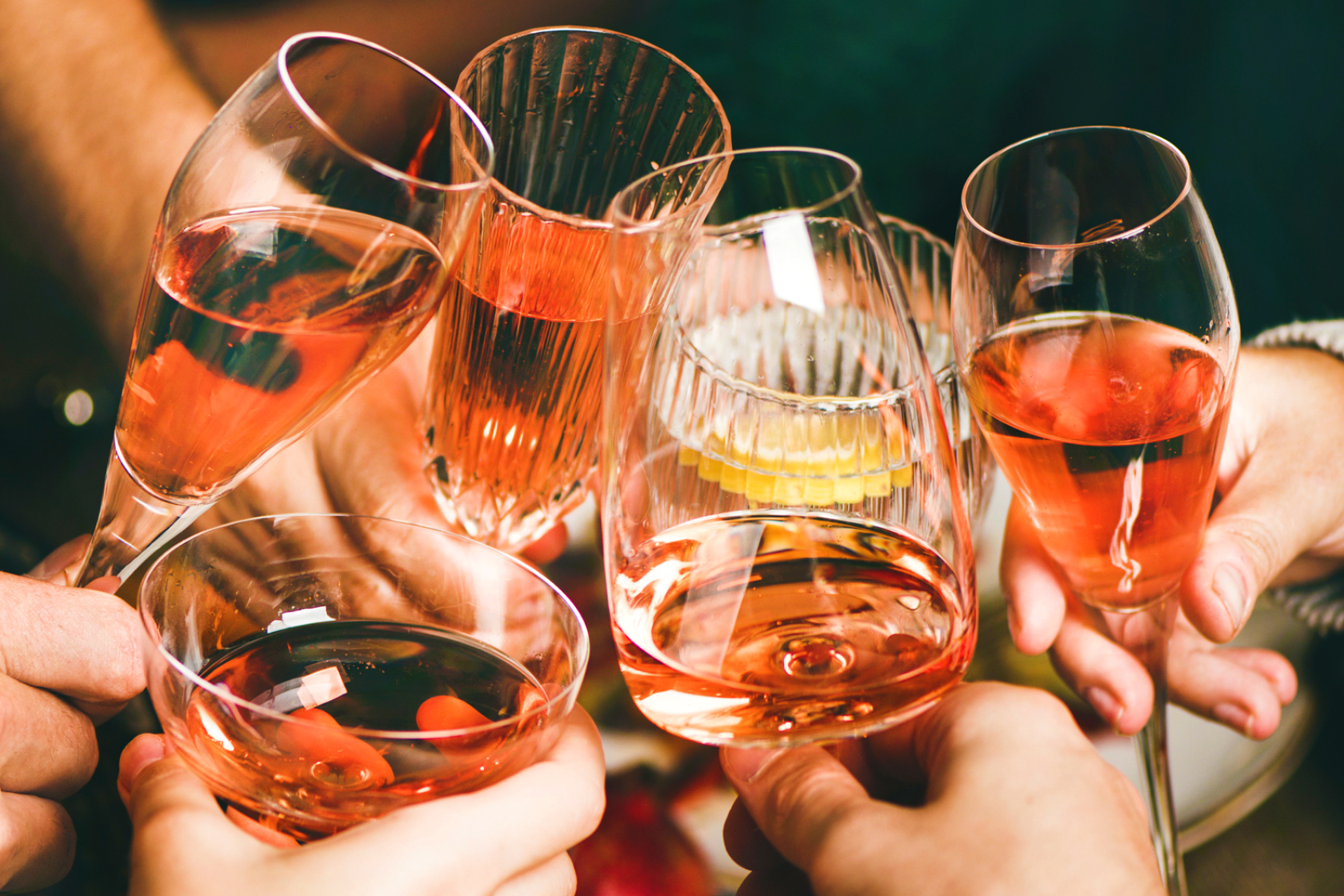Waking up groggy after an evening drink? This might be why.
The classic image of someone in a dozy sleep after a glass of wine suggests that alcohol can give you the best night’s sleep of your life. But if you’ve ever woken up after a few drinks feeling groggy and tired, you’ll know that a post-drinking snooze is anything but restful.
That might be a closer memory that you’d like, given that the festive period is on the horizon. Whether it’s a virtual office Christmas party, an outdoor drink with a friend or many bottles of fizz with bubbled family members, ‘tis the season for more alcohol than usual. But that means it’s more important than ever to know how it might affect you. So, we turned to sleep expert Dr Sophie Bostock from TheSleepScientist.com to explain everything about sleeping after drinking.
You may also like
Best hangover food: can what you eat make you feel better after drinking?
Why does alcohol make you sleepy?
You may have heard that alcohol is a sedative, helping you to relax. But the reason it makes you sleep goes way further than that. “Alcohol increases something called sleep pressure, which is one of the main systems that control sleep and involves the buildup of a chemical called adenosine that makes you feel drowsy,” explains Dr Bostock.
“Stress can impact our sleep pressure, but alcohol reduces immediate feelings of this stress. People can have a big buildup of sleep pressure and might feel like they can just pass out.”
So you might wonder why you’ve managed to stay up until the early hours of the evening after drinking before feeling the immediate need to sleep. Well, it’s because alcohol can have a delaying effect on the other main system involved in sleep – the circadian rhythm. “Actually, alcohol reduces melatonin production and can push your body clock back. It’s why you might get a ‘second wind’ when having a drink at the end of the day,” explains Dr Bostock.

How does alcohol impact sleep quality?
You’ve fallen into a deep sleep, so you should wake up feeling great – right? Unfortunately, not so much. “While alcohol helps you to switch off and initiate sleep, the quality of your sleep is disrupted,” says Dr Bostock. She explains that we normally sleep in smooth cycles during which we fall into a progressively deeper sleep at the beginning of the night, and the later half of our sleep is our REM sleep, during which we process memory, moods and emotions.
“You can fall into a deep sleep quite quickly after drinking, but when it comes to the later part of the night things get more disputed,” says Dr Bostock. “As you metabolise the alcohol in the liver, it actually behaves as a stimulant, making you more likely to wake up and meaning you spend less time in REM sleep. When you’re disrupting REM sleep you’re more likely to wake up feeling a little bit groggy, so even when you slept for the same number of hours, you haven’t had as restorative as you would have had if it had been true sleep.”
That is especially worrying for those who are already deeply fatigued or are already in sleep debt. “Many people are working too hard or just having really disruptive sleep patterns then not giving themselves any restorative sleep,” Dr Bostock says.
You may also like
Do sleep supplements actually work? An expert explains what’s in them
How much alcohol is bad for sleep?
“This is so different for each individual and depends how much you usually drink, so how used to your body is metabolising alcohol, but also on your body weight and genetics. But certainly, there’s no question heavier drinking can make the sleep-disrupting effects of alcohol worse,” says Dr Bostock.
Interestingly, Dr Bostock also notes that if you want a drink but can’t afford to wake up tired, you’re best to have a small amount of alcohol in the late afternoon or early evening. “We metabolise alcohol at different rates at different times, and your body is most efficient in during the traditional ‘happy hour’, around five o’clock. That’s when your body temperature naturally spikes and makes the body’s processes much faster.
“So if you are going to drink, my advice would actually be to drink a little bit earlier and leave as long as we can between your last drink and bed – nightcaps really don’t work. But the most important thing is to make sure that you’re not drinking every night of the week so you manage to have fully restorative sleep.”
Follow @StrongWomenUK on Instagram for the latest workouts, delicious recipes and motivation from your favourite fitness experts.
Images: Getty
Source: Read Full Article